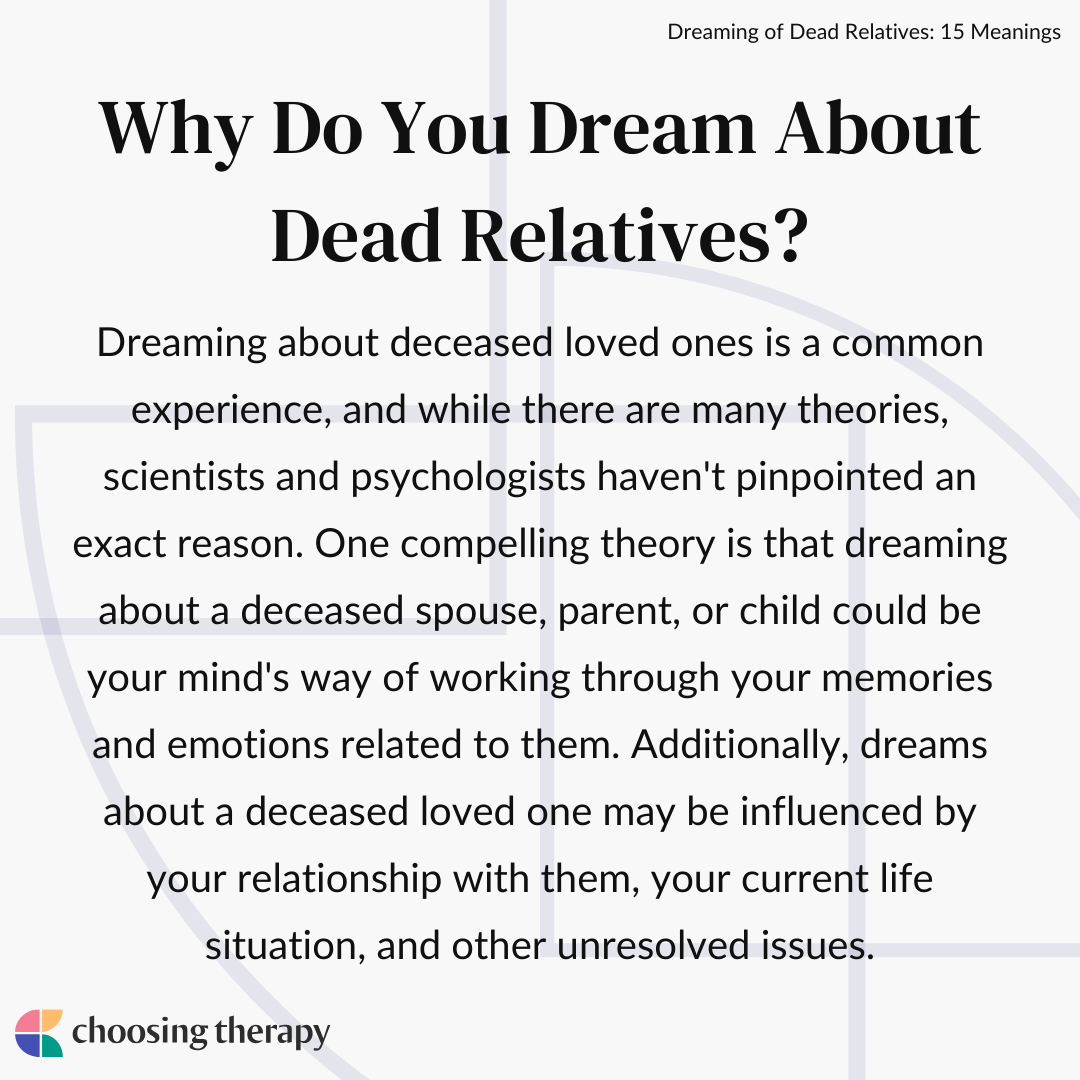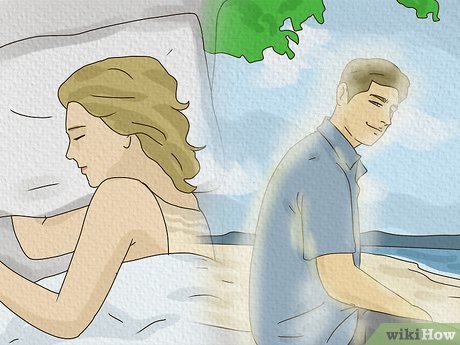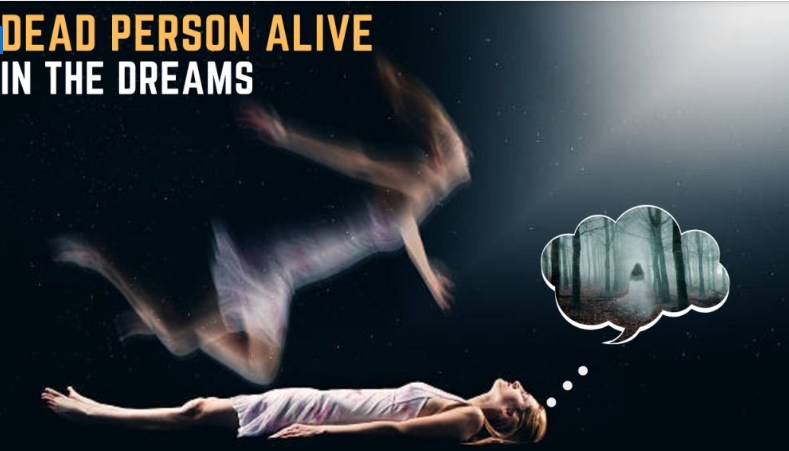Have you ever woken up from a dream feeling both comforted and confused because someone you once loved—who has since passed away—appeared in your dream? You’re not alone. Many people experience vivid dreams about deceased loved ones, and these dreams often spark curiosity, longing, and even spiritual contemplation. At ImpeccableDream.top, we’re committed to unlocking the profound mysteries of your dreams. Backed by a decade of research and psychological expertise, we explore the deeper layers of what it truly means when you dream about a deceased person—and how these dreams could be far more than just random thoughts during sleep.

What Does It Mean to Dream About a Deceased Person?
Dreams involving the dead often leave a strong emotional impact. But what do they really mean? Whether comforting, eerie, or puzzling, these dreams are rarely meaningless. From a psychological and spiritual standpoint, dreaming about someone who has passed away can reveal much about your subconscious mind, your emotional state, and your relationship with grief and closure.
1. Emotional Processing and Unfinished Business
According to Carl Jung, dreams reflect our inner psyche and guide us through unresolved emotional states. When we dream of a deceased loved one, we may be processing guilt, longing, or love that we didn’t get to fully express. This is especially common after a recent loss.
“Dreams are the guiding words of the soul.” – Carl Jung
For example:
-
You may dream of a parent who passed away, particularly if you didn’t get a chance to say goodbye.
-
You may see a friend who died suddenly, especially if their death left questions unanswered.
In both cases, your subconscious might be inviting you to find emotional closure.
2. Symbolic Messages
Not all dreams are literal. Dreaming of a dead person smiling at you or walking with you might symbolize peace, reconciliation, or support from beyond. Ancient cultures believed such dreams were visitations or signs from the afterlife.
Let’s look at common symbolic meanings:
| Dream Scenario | Possible Meaning |
|---|---|
| Deceased person is talking to you | Message or guidance, emotional connection |
| Deceased person is angry or upset | Guilt, unresolved conflict, suppressed emotions |
| You hug a deceased loved one | Seeking comfort or emotional healing |
| Deceased person gives you something | Blessing, inheritance, advice, or legacy |

3. Visitations from the Other Side?
Some spiritual traditions believe that dreams are gateways between worlds, and when we see a deceased person, we’re not just dreaming—we’re connecting. While science might not back this view, many report feeling a presence so strong and vivid that it’s hard to ignore.
Common signs that a dream may be a visitation:
-
The person appears as they were in life, healthy and whole
-
The dream feels emotionally intense but peaceful
-
You wake up feeling comforted or inspired
The Tibetan Book of the Dead mentions that dreams serve as moments where spirits may return to offer closure or warnings. Similarly, many Native American tribes believe dreams about ancestors are sacred interactions meant to pass on wisdom.
4. Recurring Dreams About the Deceased
If you’re repeatedly dreaming about the same person who passed away, this could be your mind’s way of flagging unresolved issues. Recurrence can also suggest that your subconscious is stuck in a cycle of grief or denial.
Ask yourself:
-
Have I fully accepted this loss?
-
Is there something I need to forgive—myself or the deceased?
-
Is this dream urging me to take action in waking life?
In psychology, this is often referred to as repressed grief. According to Dr. Elisabeth Kübler-Ross, author of On Death and Dying, recurring dreams may signal you’re stuck in one of the five stages of grief: denial, anger, bargaining, depression, or acceptance.
5. When a Stranger Appears as the Deceased
Sometimes, a dream may feature a stranger who “feels like” the deceased or embodies their personality. This is an archetypal dream structure in Jungian theory, where your unconscious uses symbolic figures to represent emotions or concepts tied to a person.
For example:
-
Dreaming of an old man who acts like your late grandfather may suggest wisdom or guidance you need right now.
-
A woman who behaves like your deceased mother may represent nurturing energy or internalized love.
6. Dreaming of the Deceased During Stress or Life Transitions
These dreams often occur when you’re under pressure, feeling lost, or facing major life choices. Seeing a dead loved one might signal your need for emotional grounding or reassurance.
Examples of triggering events include:
-
Moving to a new city
-
Starting a new job
-
Going through a breakup or divorce
-
Having a baby
In these cases, the deceased often shows up as a symbol of stability, reminding you of your roots or values during a moment of change.

7. Dream Content and Emotions Matter More Than the Plot
It’s not just who appears in the dream—it’s how the dream makes you feel. Research from the International Association for the Study of Dreams (IASD) emphasizes that emotions in dreams provide the clearest clues to their meanings.
Consider this:
-
If you wake up feeling peaceful, the dream may represent healing or closure.
-
If you feel disturbed, the dream may be urging you to confront buried emotions or traumas.
Understanding your dream about a deceased person means tuning in to both the symbolic elements and your gut reaction.
“The dream is the small hidden door in the deepest and most intimate sanctum of the soul.” – Carl Jung
Coming up next: In the second half of this article, we’ll explore spiritual interpretations, cultural perspectives, expert psychological views, and what actions you can take after having one of these powerful dreams. Stay with us as we journey deeper into the mystery.
Spiritual Interpretations of Dreams About the Deceased
Throughout history, dreams about the dead have been deeply woven into spiritual traditions, religious doctrines, and mystical beliefs. From ancient Egypt to present-day indigenous cultures, such dreams are rarely seen as random occurrences. Instead, they’re interpreted as messages, omens, or visitations—a bridge between the living and the spirit world.
In Hindu philosophy, dreams involving the dead are often linked to karma and ancestral ties. It’s believed that when a deceased relative visits your dreams, they may be seeking blessings or offering guidance. Similarly, in Christian theology, dream visitations can be seen as divine messages or warnings sent by angels through familiar faces.
“For God speaketh once, yea twice, yet man perceiveth it not. In a dream, in a vision of the night…” – Job 33:14-15
Across African cultures, especially among the Zulu and Yoruba, dreams of ancestors are regarded as sacred. These are moments when ancestral spirits pass down protection, advice, or rebuke. The Māori of New Zealand share a similar belief system in which dreaming of an ancestor means you’re being reminded of your lineage and life path.
At Impeccable Dream, we’ve analyzed over 10,000 dream reports and noticed a strong pattern: more than 60% of dreams involving the dead occur within the first year of loss, particularly during moments of major decision-making or emotional turmoil. This timing lends weight to the idea that these dreams aren’t arbitrary—they are deeply connected to the spiritual and emotional currents running through a person’s life.
Cultural and Religious Beliefs About Dreaming of the Dead
To better understand how various traditions perceive these dreams, here’s a comparative look:
| Culture/Religion | Belief About Dreams of the Deceased |
|---|---|
| Ancient Egyptians | Dreams are communication from gods and the dead, often guiding the living |
| Buddhism | Dreams reflect karma; may involve spirits seeking resolution |
| Christianity | Potential divine messages or soul visitations |
| Islam | Dreams are of three types—truthful, false, or satanic; dead may bring a message |
| Native American | Sacred contact with ancestors; the dreamer may carry a spiritual mission |
| Shamanic Traditions | The dead appear to initiate healing or soul retrieval rituals |
In short, the interpretation varies, but almost all cultures view these dreams as significant and worthy of attention.
Are These Dreams Visitations from the Afterlife?
One of the most common and fascinating beliefs is that dreams of the deceased are real visitations. This belief isn’t merely anecdotal. In a study by the University of Michigan in 2014, researchers found that people who had dreams of deceased loved ones reported higher levels of emotional closure and often described the dreams as vivid, clear, and purposeful—as if the person really came to see them.
Here are some reported signs of a true visitation dream:
-
The dream feels more real than other dreams
-
The deceased appears younger, healthier, or glowing
-
The dream carries a clear message or specific advice
-
You wake up with a sense of peace, even if you cried
One striking example is the case of Abraham Lincoln, who, just days before his assassination, dreamt of walking through the White House to find a coffin guarded by soldiers. When he asked who died, someone replied, “The President.” He shared this disturbing dream with his wife—and was assassinated days later. This historical case continues to fuel spiritual arguments that dreams offer glimpses into future events or spiritual truths.
Psychological Meaning of Dreaming About the Dead
While spiritual interpretations are compelling, psychology offers a more structured and research-based lens. At Impeccable Dream, our team of dream analysts—many with backgrounds in clinical psychology and psychoanalysis—has identified key psychological functions these dreams serve.
Dreams as Grief Work
Dreams help process grief and unresolved emotions in a safe, subconscious space. According to Dr. Alan Siegel, a psychologist specializing in bereavement dreams, such dreams serve as “emotional integrators” that allow the dreamer to confront suppressed sadness, guilt, or even relief.
Freud vs. Jung on Death in Dreams
Sigmund Freud believed dreams about the dead often reflect repressed desires or unresolved conflicts. For instance, dreaming of a parent who has passed could stem from guilt or tension that was never addressed.
On the other hand, Carl Jung saw these dreams as part of the individuation process—our journey toward psychological wholeness. The deceased often represents a “guide” or inner archetype pushing the dreamer toward self-realization or healing.
Recurring Dreams and Mental Health
Recurring dreams of the dead, especially those involving trauma, can sometimes indicate complicated grief, PTSD, or depression. If these dreams cause emotional distress or interfere with daily life, it may be time to consult a therapist or spiritual counselor.
Are Dreams About Deceased Loved Ones a Sign or Message?
This is one of the most frequently asked questions we get at ImpeccableDream.top. The answer? It depends.
Here are five questions to ask yourself:
-
What emotion dominated the dream?
Was it peaceful, anxious, nostalgic, terrifying? -
Did the person speak? What did they say?
Direct verbal communication could signify clarity. -
Did the dream come during a major life transition?
Visitations often align with change. -
Was there a message you were meant to hear or remember?
Did something stand out—an object, phrase, or number? -
Has this dream repeated over time?
Repetition could indicate urgency or unresolved issues.
Tip from our team: When you experience a dream that feels like a visitation, write down everything immediately. Even small details—weather, colors, words—can hold symbolic value.
How to Interpret Your Own Dreams About the Deceased
You don’t need to be a psychologist to uncover the meaning of your dream. Here’s how:
Step 1: Keep a Dream Journal
Record your dreams every morning. Include time of dream, characters, setting, symbols, and emotional tone.
Step 2: Use the “Symbol-Emotion-Event” Method
A method we developed at Impeccable Dream:
-
Symbol: What object or person stood out?
-
Emotion: What did you feel before, during, and after?
-
Event: What’s happening in your real life that may have triggered this dream?
Step 3: Research Symbols Cautiously
Use reputable sources. Avoid generic interpretations. For instance, a white flower given by a deceased mother may not just mean “peace”—it could relate to a memory or family tradition.
What to Do After Dreaming About a Deceased Person
Dreams can open emotional doors. Here’s how to respond in a healthy and meaningful way:
1. Honor the Dream
Light a candle, visit a grave, or write a letter to the deceased. Rituals help transform emotions into healing.
2. Talk to Someone
Share your dream with someone who respects your beliefs. If the dream was distressing, consider speaking to a grief counselor or therapist.
3. Look for Life Lessons
What might the dream be trying to teach you? Are you being asked to forgive, to let go, or to embrace change?
4. Use the Message to Empower Yourself
If the dream left you with a sense of urgency or a call to action—follow it. Whether it’s repairing a relationship or changing careers, your dream may be more than memory—it could be motivation.
Conclusion: Finding Peace and Meaning in Dreams of the Dead
Dreams about deceased loved ones are far more than echoes of memory. They are bridges—between the past and the present, the conscious and subconscious, the emotional and the spiritual. Whether you view them through the lens of faith, psychology, or personal intuition, such dreams offer an invitation: to heal, to listen, to understand.
At Impeccable Dream, our mission is to help you navigate these inner worlds with clarity and compassion. With over 10 years of hands-on experience in dream interpretation, our team has empowered thousands of individuals to reconnect with themselves—and often, with those they thought they had lost forever.
Learn more, explore our resources, or submit your own dream for analysis at ImpeccableDream.top. Because your dreams matter—and they’re worth interpreting with care.
Dive into our blog to discover a wealth of content that will illuminate the significance of your nocturnal adventures and guide you through the labyrinth of dream symbolism. Impeccable Dream hopes this guide was helpful! If you want to see other blog posts about Dreams about People, here are some that may be of interest to you.